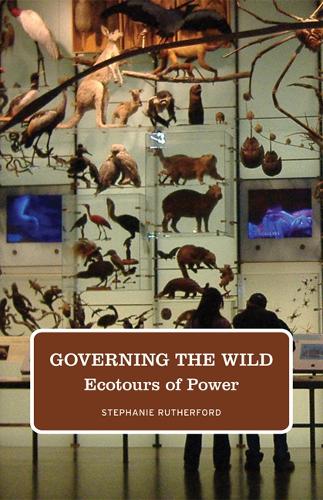
Governing the Wild: Ecotours of Power
(Paperback)
Publishing Details
Governing the Wild: Ecotours of Power
By (Author) Stephanie Rutherford
University of Minnesota Press
University of Minnesota Press
9th January 2012
United States
Classifications
General
Non Fiction
Environmental policy and protocols
910.4
Physical Properties
Paperback
288
Width 140mm, Height 216mm, Spine 20mm
Description
Take four emblematic American scenes: the Hall of Biodiversity at the American Museum of Natural History in New York; Disneys Animal Kingdom theme park in Orlando; an ecotour of Yellowstone and Grand Teton National Parks; the film An Inconvenient Truth. Other than expressing a common interest in the environment, they seem quite dissimilar.
And yet, as Governing the Wild makes clear, these sites are all manifestations of green governmentality, each seeking to define and regulate our understanding, experience, and treatment of nature. Stephanie Rutherford shows how the museum presents a scientized assessment of global nature under threat; the Animal Kingdom demonstrates that a corporation can successfully organize a biopolitical project; the ecotour, operating as a school for a natural aesthetic sensibility, provides a visual grammar of pristine national nature; and the film offers a toehold on a moral way of encountering nature. But one very powerful force unites the disparate truths of nature produced through these sites, and that, Rutherford tells us, is their debt to natures commodification.
Rutherfords analysis reveals how each site integrates nature, power, and profit to make the buying and selling of nature critical to our understanding and rescuing of it. The combination, she argues, renders other ways of encountering natureparticularly more radically environmental waysunthinkable.
Reviews
"From Disney amusement centers and natural history museums to Al Gores global warming spectaculars and American national parks, Stephanie Rutherford traces out the historical contingencies behind green governmentality. Using this notion as her analytic of power, she develops an insightful analysis of how contemporary cultural politics and global markets help govern the wild and constitute the self in the U.S. through environmentally-driven consumer experiences." Timothy W. Luke, Virginia Polytechnic Institute and State University
Author Bio
Stephanie Rutherford is assistant professor in the environmental and resource studies program at Trent University.
